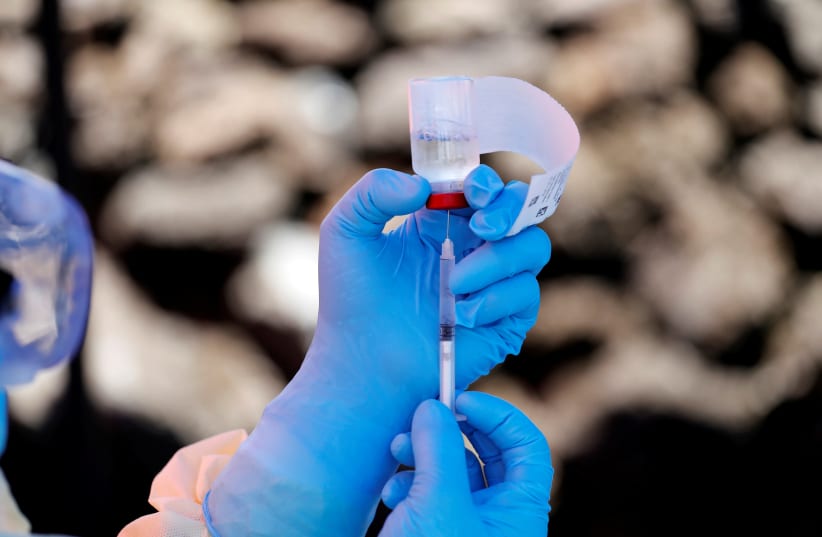World leaders launched a pledging "marathon" on Monday - without the United States - to raise at least $8 billion for research into a possible vaccine and treatments for the coronavirus.
Organisers included the European Union, non-EU states Britain and Norway, as well as Japan, Canada and Saudi Arabia, although, China, where the virus originated in December, was only represented by its ambassador to the European Union.
Governments aim to raise funds over several weeks or months, building on efforts by the World Bank, the Bill and Melinda Gates Foundation and wealthy individuals and turn the page on the fractious and haphazard initial response around the world.
"I believe the fourth of May will mark a turning point in our fight against coronavirus because today the world is coming together," the head of the European Commission, Ursula von der Leyen, said at the start of the event, pledging 1 billion euros ($1.09 billion).
She called the pledging effort a marathon.
British Prime Minister Boris Johnson, who has recovered from a life-threatening battle with COVID-19, said the search for a vaccine was "the most urgent shared endeavour of our lifetime", calling for "an impregnable shield around all our people".
A conference list of speakers did not include any U.S. officials. EU diplomats said the United States, which has the world's most confirmed cases of the COVID-19 disease, was not taking part, although it is a major donor to the United Nations and U.N. bodies.
A senior U.S. administration official declined to say specifically why the United States was not participating.
"We support this pledging effort by the EU. It is one of many pledging efforts that are going on and the United States is at the forefront," the official told reporters by telephone.
President Donald Trump said on April 15 that he would halt funding to the World Health Organization, whose director general addressed the conference, over its handling of the pandemic.
That was something Norway's Prime Minister Erna Solberg said she regretted, as well as Washington's absence on Monday.
"It is a pity the U.S. is not a part of it. When you are in a crisis, you manage it and you do it jointly with others," Solberg told Reuters in an interview, pledging $1 billion to support the distribution of any vaccine developed against COVID-19, and for vaccines against other diseases.
The size of donations may not be known immediately, and it is unclear how much of the pledges will represent new funding, as commitments made earlier this year will also be included.
Saudi Arabia, the current chair of the Group of 20 industrialised countries, has promised $500 million.
INITIAL GOAL, GLOBAL REACH
Many leaders stressed that any vaccine must be available to everyone. Canada's Prime Minister Justin Trudeau said it could not just be available for rich countries, while French President Emmanuel Macron went further, saying any vaccine "won't belong to anybody".
"Those who invent it of course will be fairly paid, but access will be given to people across the globe by the organisation we chose," Macron said.
EU officials said pharmaceutical companies who will receive the funding will not be requested to forgo their intellectual property rights on the new vaccine and treatments, but they should commit to make them available worldwide at affordable prices.
The 8-billion-dollar target is an initial figure. Von der Leyen has said more money will be needed over time.
The Global Preparedness Monitoring Board, a U.N.-backed body focusing on health crises, estimates that the world needs at least $3 billion at once to develop, manufacture and distribute a possible vaccine against COVID-19, the EU Commission said.
Another $2.25 billion is needed to develop antiviral treatments for COVID-19, $750 million for testing kits, and another $750 million to stockpile essential protective equipment, such as face masks.
The remaining $1.25 billion included in the initial funding goal will go to the World Health Organization (WHO) to support the most vulnerable countries.
